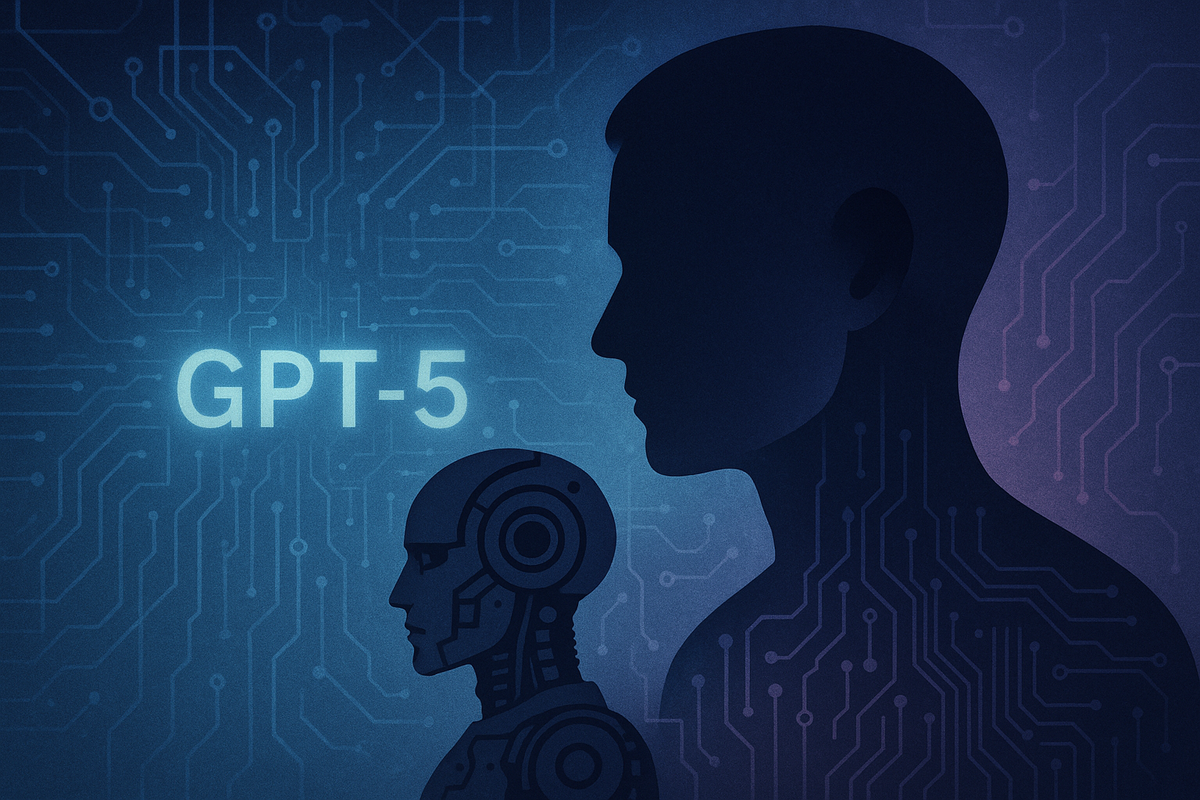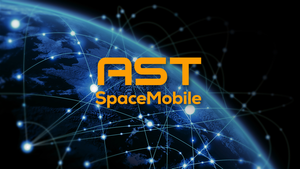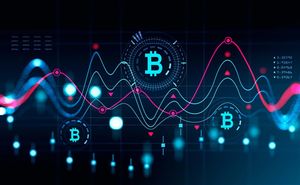Financial News
GPT-5 and the Ethical Frontier: Navigating Bias, Job Displacement, and the Call for Regulation

The impending release of GPT-5, the latest iteration of OpenAI's groundbreaking large language model, has ignited a fervent debate across the globe, shifting the conversation from technological marvel to profound ethical implications. As this advanced AI system promises unprecedented capabilities in content generation, automation, and problem-solving, it simultaneously casts a long shadow of concern over issues such as algorithmic bias, widespread job displacement, the proliferation of misinformation, and the critical need for robust data privacy safeguards. The financial markets and public companies are keenly observing these developments, understanding that the ethical deployment of such powerful AI will dictate not only societal impact but also long-term market stability and investor confidence.
This new era of AI, spearheaded by models like GPT-5, forces a critical examination of humanity's relationship with technology. The immediate implications are far-reaching, touching upon labor markets, information integrity, and the very fabric of democratic processes. Stakeholders from governments to corporations and civil society organizations are grappling with how to harness AI's immense potential while mitigating its inherent risks, setting the stage for a pivotal moment in the evolution of artificial intelligence and its integration into daily life.
The Dawn of GPT-5: A Double-Edged Sword for Society
The anticipated launch of GPT-5 marks a significant leap forward in artificial intelligence, promising enhanced reasoning, creativity, and contextual understanding far beyond its predecessors. While specific details regarding its exact release date and full capabilities remain under wraps, the tech community and the public are bracing for an AI model that could fundamentally alter how we interact with information, automate tasks, and even create art. This advancement, however, is not without its profound challenges. A primary concern revolves around the potential for GPT-5 to perpetuate and amplify existing societal biases embedded within its vast training datasets. If not meticulously curated and audited, these biases could lead to discriminatory outcomes in areas like hiring, loan applications, or even legal judgments, disproportionately affecting marginalized communities.
The timeline leading up to this moment has been characterized by rapid advancements in AI, from the initial public release of ChatGPT by OpenAI in late 2022, which brought generative AI into mainstream consciousness, to the subsequent releases of GPT-4 and other competing models from companies like Google (NASDAQ: GOOGL) with Gemini and Anthropic with Claude. These developments have showcased AI's incredible potential but also highlighted its nascent ethical challenges. Key players involved include OpenAI, the developer of GPT-5, along with a consortium of investors and partners, most notably Microsoft (NASDAQ: MSFT), which has poured billions into the company. Regulatory bodies worldwide, including the European Union with its AI Act, and various U.S. government agencies, are also critical stakeholders, scrambling to establish frameworks to govern this rapidly evolving technology. Initial market reactions have been a mix of excitement over productivity gains and apprehension regarding the societal shifts AI might induce, with tech stocks often seeing boosts on AI-related news, but also facing scrutiny over ethical practices.
Navigating the AI Landscape: Who Wins and Who Loses?
The advent of GPT-5 is poised to create a distinct divide between winners and losers in the corporate landscape, largely dependent on their ability to adapt, innovate responsibly, and integrate AI ethically. Winners are likely to be technology giants and specialized AI firms that can effectively leverage GPT-5's capabilities to enhance their products and services, or those providing the foundational infrastructure. Companies like Microsoft (NASDAQ: MSFT), with its deep integration of OpenAI's technologies into its Azure cloud services and Copilot offerings, stands to gain significantly from increased enterprise adoption of AI. Similarly, Nvidia (NASDAQ: NVDA), as the dominant supplier of the high-performance GPUs essential for training and running large AI models, will continue to see surging demand for its hardware. Software companies that can build innovative applications on top of GPT-5, offering bespoke solutions for various industries, will also thrive. These firms will likely see increased efficiency, reduced operational costs, and the ability to offer novel services, leading to higher profitability and market capitalization.
Conversely, losers may include companies and sectors that are slow to adopt AI, or those whose business models are directly threatened by AI-driven automation without a clear pivot strategy. Industries heavily reliant on routine cognitive tasks, such as customer service, data entry, content moderation, and even certain aspects of journalism and graphic design, face significant disruption. Companies that fail to retrain their workforce or invest in AI-powered tools could see their competitive edge erode rapidly. Furthermore, firms that mishandle AI ethics, particularly regarding bias or data privacy, could face severe reputational damage, regulatory fines, and a loss of consumer trust, directly impacting their stock performance. For instance, social media platforms that struggle to combat AI-generated misinformation or deepfakes could face public backlash and increased regulatory scrutiny, potentially impacting their advertising revenues and user engagement.
Industry Transformation and Broader Societal Implications
The release of GPT-5 fits squarely into the broader industry trend of pervasive AI integration, moving beyond niche applications to become a foundational technology across virtually all sectors. This event will accelerate the ongoing digital transformation, pushing companies to re-evaluate their operational efficiencies, customer engagement strategies, and product development cycles. The ripple effects will be profound: competitors will be forced to invest heavily in AI to keep pace, potentially leading to an AI arms race among tech giants. Partners across supply chains will need to develop AI-compatible systems, fostering a more interconnected, AI-driven ecosystem. This could also lead to consolidation in some sectors, as smaller players struggle to compete with AI-enhanced behemoths.
From a regulatory standpoint, GPT-5's capabilities amplify the urgent call for robust frameworks. Governments worldwide are grappling with how to regulate AI without stifling innovation. The European Union's AI Act, which categorizes AI systems by risk level, serves as a potential blueprint, but the rapid pace of AI development often outstrips legislative processes. Policy implications extend to intellectual property rights for AI-generated content, liability for AI errors, and the establishment of ethical guidelines for AI development and deployment. Historically, the introduction of transformative technologies like the internet or personal computers also sparked similar debates about societal impact and regulation. However, AI's ability to mimic human cognition and generate sophisticated content presents unique challenges, particularly concerning misinformation and deepfakes, which could undermine public trust in information and even destabilize democratic processes. The imperative for human oversight in critical AI applications becomes paramount to prevent unintended consequences and ensure accountability.
The Road Ahead: Navigating the AI Revolution
In the short term, the release of GPT-5 will likely trigger an immediate surge in AI adoption across various industries, as businesses seek to capitalize on its promised efficiencies and capabilities. We can expect a rapid proliferation of AI-powered tools and services, leading to increased demand for AI talent and infrastructure. Companies that have already invested in AI research and development will be well-positioned to integrate GPT-5, potentially gaining a significant competitive advantage. However, this period will also be marked by heightened scrutiny over AI ethics, with public discourse and regulatory bodies closely monitoring its deployment for signs of bias, job displacement, or misuse.
Looking further ahead, the long-term possibilities are transformative yet uncertain. GPT-5 could unlock entirely new industries and job categories that don't exist today, similar to how the internet created the digital economy. However, it also necessitates significant strategic pivots for many organizations, requiring them to invest heavily in workforce retraining and reskilling initiatives to adapt to an AI-augmented labor market. Market opportunities will emerge in AI governance, ethical AI auditing, and specialized AI consulting services. Challenges will include managing the societal transition, ensuring equitable access to AI benefits, and preventing the concentration of AI power in the hands of a few entities. Potential scenarios range from a highly productive, AI-enhanced society that addresses complex global challenges, to one grappling with significant social unrest due to economic disruption and the erosion of trust. The outcome will largely depend on the proactive measures taken by governments, corporations, and civil society to guide AI's development responsibly.
Conclusion: A Defining Moment for AI and Humanity
The anticipated arrival of GPT-5 represents a defining moment in the trajectory of artificial intelligence, encapsulating both immense promise and profound peril. The key takeaways from this impending release are clear: AI's power to transform industries and societies is undeniable, but its ethical implications—particularly concerning bias, job displacement, misinformation, and data privacy—demand immediate and sustained attention. The market moving forward will be characterized by rapid innovation, intense competition, and an increasing emphasis on responsible AI development. Companies that prioritize ethical AI frameworks, invest in workforce adaptation, and engage proactively with regulatory bodies will be best positioned for long-term success.
The significance of GPT-5 extends beyond technological advancement; it is a litmus test for humanity's ability to govern its most powerful creations. Its lasting impact will hinge on the collective commitment to developing AI that is not only intelligent but also fair, transparent, and accountable. Investors should closely watch for companies' AI governance strategies, their efforts in mitigating ethical risks, and their engagement with emerging regulatory landscapes. Furthermore, monitoring public sentiment and policy developments around AI will be crucial, as these factors will increasingly influence market dynamics and the social license for AI innovation in the coming months and years. The future of AI, as embodied by GPT-5, is not merely a technological challenge but a profound societal one, requiring a collaborative and conscientious approach to ensure its benefits are widely shared and its risks effectively managed.
More News
View More





Quotes delayed at least 20 minutes.
By accessing this page, you agree to the following
Privacy Policy and Terms Of Service.



